All Stories
-
 Earth
EarthFaulty thermometers exaggerated western U.S. mountain warming
Defective thermometers used in snowpack and ecology research overstated warming in western U.S. mountains.
-
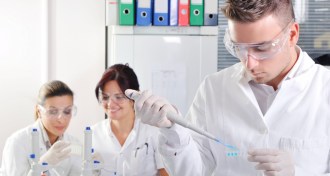 Science & Society
Science & SocietyAttitude, not aptitude, may contribute to the gender gap
Does talent or hard work matter most? A new survey suggests an emphasis on genius predicts how many women end up in a field of study.
-
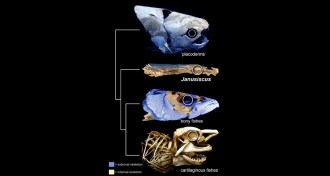 Life
LifeFossilized fish skull shakes up the evolutionary history of jaws
Analysis of a 415-million-year-old fossilized fish skull suggest that the earliest jawed vertebrates probably looked a lot like modern bony fish.
-
 Animals
AnimalsMountain migration is a roller coaster for bar-headed geese
Bar-headed geese rise and fall to match terrain below them when migrating over the Himalayas.
-
 Astronomy
AstronomyRocky planets around cool stars may have Earthlike climates
Small, rocky planets that sit close to cool stars might be able to keep spinning, creating conditions hospitable to life.
-
 Quantum Physics
Quantum PhysicsPhysicists debate whether quantum math is as real as atoms
Physicists debate whether quantum states are as real as atoms or are just tools for forecasting phenomena.
-
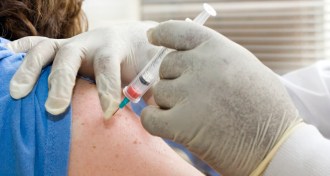 Life
LifeIn battle to shape immunity, environment often beats genes
The environment, especially microbes, shapes immune system reactions more than genes do.
-
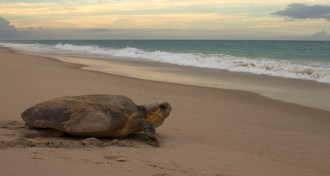 Animals
AnimalsEarth’s magnetic field guides sea turtles home
Over 19 years, geomagnetic fields changed slightly and so did loggerheads’ nesting sites.
By Julia Rosen -
 Health & Medicine
Health & MedicineWhat’s in a nap? For babies, it may make long-lasting memories
Taking naps after learning seems to help babies less than a year old make memories and keep them, for about a day anyway.
-
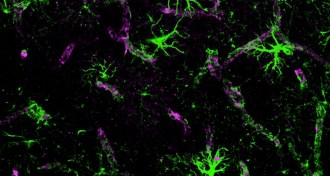 Neuroscience
NeuroscienceBrain’s plumbing may knock out blood test for brain injury
The brain's waste-removal system may complicate scientists' attempts to create a blood test to diagnose traumatic brain injury.
-
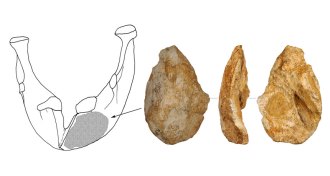 Archaeology
ArchaeologyAncient bone hand ax identified in China
People may have dug up roots with the 170,000-year-old bone tool, the first found in East Asia.
By Bruce Bower -
 Neuroscience
NeuroscienceTo beat sleepiness of anxiety drugs, team looks to body’s clock
Studying basic functions, such as the body’s clock, has inadvertently led to a compound that relieves anxiety in mice.